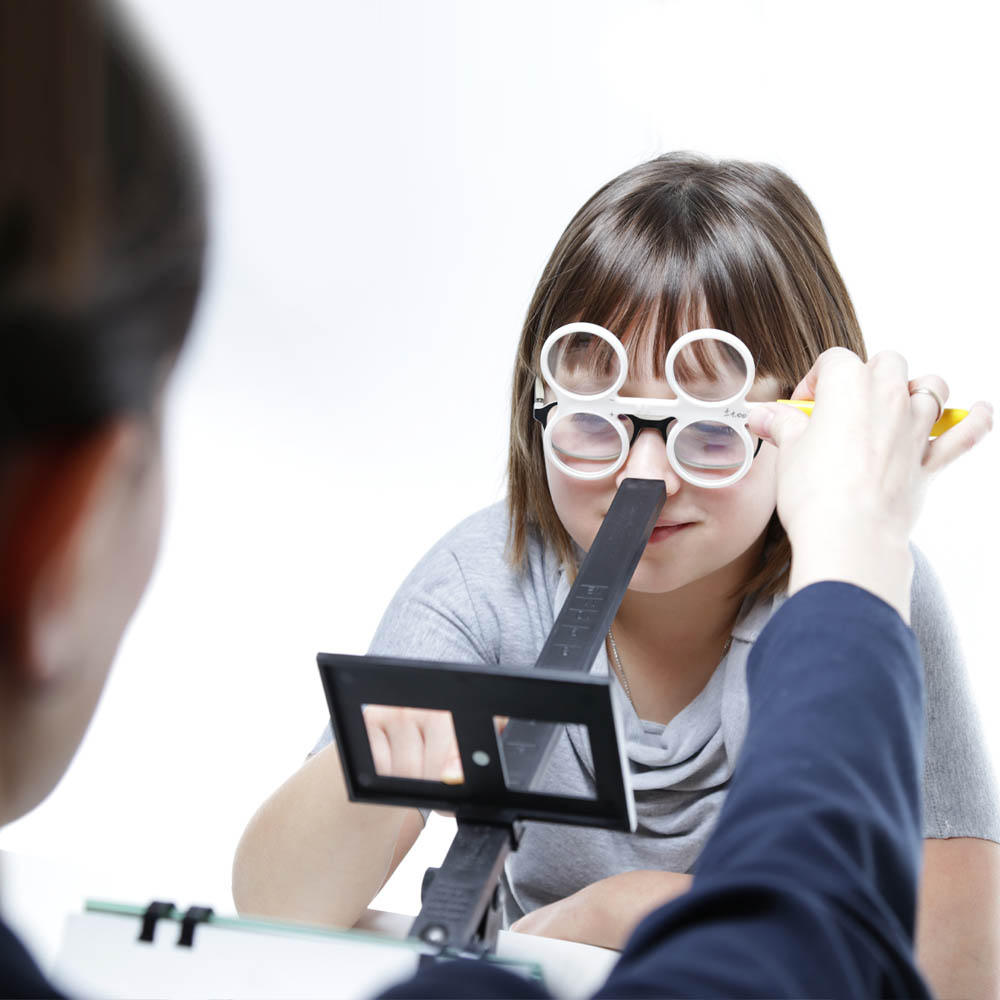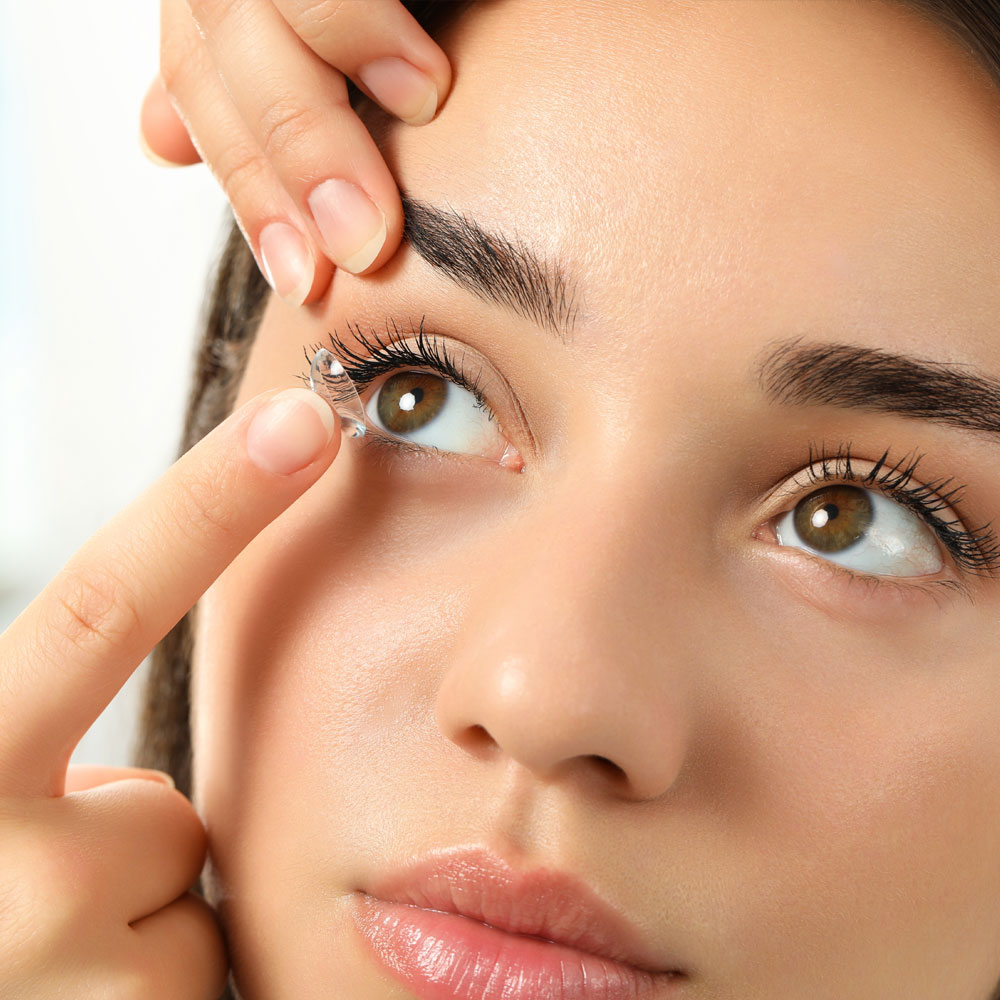
Your Livonia Eye Doctor
You can find us at the corner of Five Mile and Hubbard between Merriman and Farmington.
About Suburban Eye Care
We welcome you to Suburban Eye Care, where our expert doctors and dedicated staff have enjoyed caring for families like yours for over 50 years! From the moment you arrive, you will find friendly faces, state-of-the-art technology, empowering educational tools, and fashion from trendy to traditional. We love what we do, and we want our patients to stay healthy, see their best, and look their best.
The practice moved to its current location in the heart of Livonia in 2000 with ample space for the growing practice, and the founders soon after eased into retirement with Dr. Jacobi as Owner and Clinical Director of Suburban Eye Care. Our building features over 10,000 square feet, with 25% of the space devoted entirely to our Vision Therapy Center in the basement.

Our Eye Care Services

Low Vision
Low vision occurs when a person’s visual acuity is 20/70 or worse, and their vision can’t be fixed with glasses or contacts. Find out how an eye doctor can help.

Vision Therapy
Vision therapy is a scientifically-proven regimen of in-office and at-home exercises to train the brain and eyes to work together better. Find out how we can help.

Myopia Management
Children with myopia are at higher risk for potentially sight-threatening vision problems. Save your child’s vision with myopia management.
Scleral lenses are a great option for those with severe dry eye or abnormally-shaped corneas. Is this comfortable alternative to traditional contacts right for you?
Do you have dry, itchy, gritty-feeling eyes? Dry eye syndrome is a very common condition. We offer dry eye treatments at our eye care clinic.
From updating your eyeglasses prescription to detection and treatment of eye diseases, comprehensive eye exams are important for continued visual health.
During a contact lens exam, your eye doctor will check if you are a good candidate for contacts and find the best type of contacts for your needs..
If cataracts go untreated, they can cause total blindness in the affected eye. We can help with co-management of your cataract removal surgery.
Eye diseases such as glaucoma and macular degeneration can cause severe loss of vision if not diagnosed and treated early. Our eye care team can help.
Clear vision is an essential part of a child’s healthy development and learning. Regular pediatric eye exams can help detect and treat common issues.
Eye emergencies such as severe pain in the eye, or foreign objects puncturing the eye require immediate attention. Contact us immediately.
Astigmatism can cause vision problems such as blurred or double vision at all distances. Find out what you can do to correct astigmatism and see your best.
Over 50% of people living with glaucoma don’t know they have the disease as it shows no symptoms. Early detection and treatment can prevent blindness.
Orthokeratology is a non-invasive vision correction alternative to LASIK. Put in the specialty lenses while you sleep, and experience better vision in the morning.
Neuro Optometry trains healthy communication and coordination between the brain and eyes. This treats visual problems following concussions and other head injuries.
The ups and downs of diabetes can be difficult to navigate. How can diabetes affect your eyes? How can you and your eye doctor keep them healthy?
Macular degeneration can cause severe central vision loss if not detected and treated early on. We can help preserve your vision.
Presbyopia is a normal part of aging. If you’re past 40 and notice you can’t read up close, our eye doctors may be able to help.
Sports vision therapy can train the brain and eyes to work together for better coordination and faster reactions. We can help you play your best.
While vision can change drastically in the senior years, these changes shouldn't have to impair one's quality of life. The earlier these problems are detected and treated, the more likely proper eye care can help you retain good vision.
Eyeglasses & Frames
Designer Frames
Our extensive optical section offers a wide variety of eyeglass frames in every style, material & design. Come visit us today to see for yourself!
Our expert optical team can find just the right pair of glasses for you to be confident and look your best.
Lens coatings improve visual comfort, make it easier to clean your glasses and ensure your lenses last longer. Coatings include anti-scratch, anti-reflective, photochromatic and UV / blue light filters.
Contact Lenses
Contact Lens Fitting
We offer a wide range of contact lens options from dailies, monthly to multifocal contact lenses for crystal clear vision and superior comfort.
During a contact lens exam, your eye doctor will check if you are a good candidate for contacts and find the best type of contacts for your needs.

Buy One, Get One 50% Off Eyeglasses
*Requires purchase of complete prescription pairs, including frame and lenses. Discount applied to complete pair of equal or lesser value. Does not include sunglass frames,Barton Perreira, Cartier, Cazal, Chanel, Cutler and Gross, Dior, Dita Lancier, Fendi, Gucci, ic!Berlin, l.a. Eyeworks, Maui Jim, Mykita, Nifties, Oakley, Oliver Peoples, Persol, Ray-Ban, Robert Marc, Salt, Salvatore Ferragamo, Skaga, Silhouette, Tom Ford, WOOW, accessories, contact lenses, or medical procedures. Cannot be combined with any other discounts, promotions, or insurance plans. Not valid on previous orders. Other restrictions may apply. See practice for full details. Offer valid 04/08/2024-06/16/2024. 24AEG-729313
Location & Opening Hours
You can find us at the corner of Five Mile and Hubbard between Merriman and Farmington.
- Monday 10:00 am - 1:00 pm
3:00 pm - 7:00 pm - Tuesday 9:00 am - 6:00 pm
- Wednesday 9:00 am - 6:00 pm
- Thursday 10:00 am - 1:00 pm
3:00 pm - 7:00 pm - Friday 9:00 am - 4:00 pm
- Saturday Closed
- Sunday Closed























